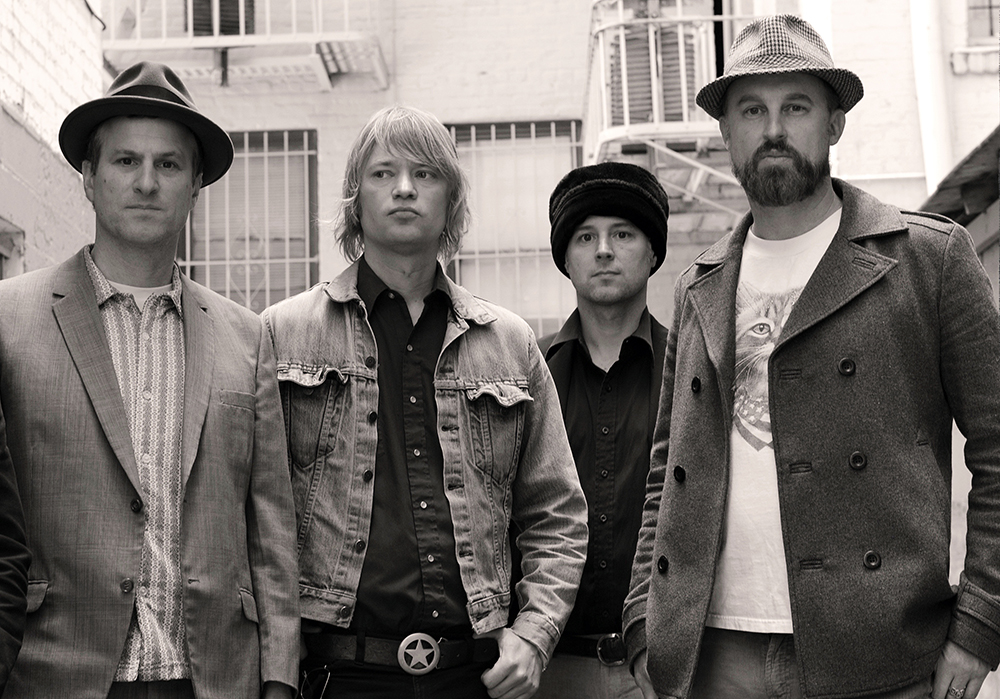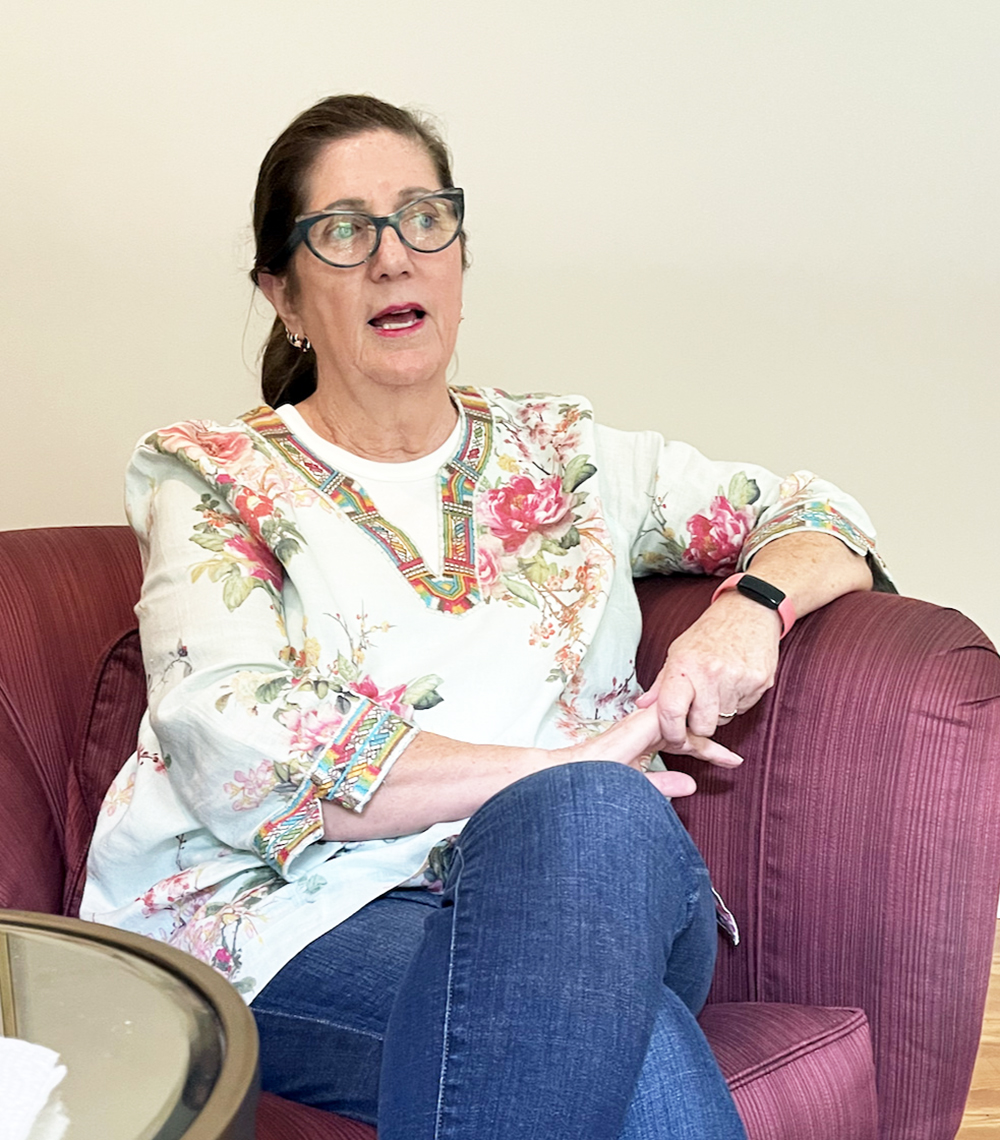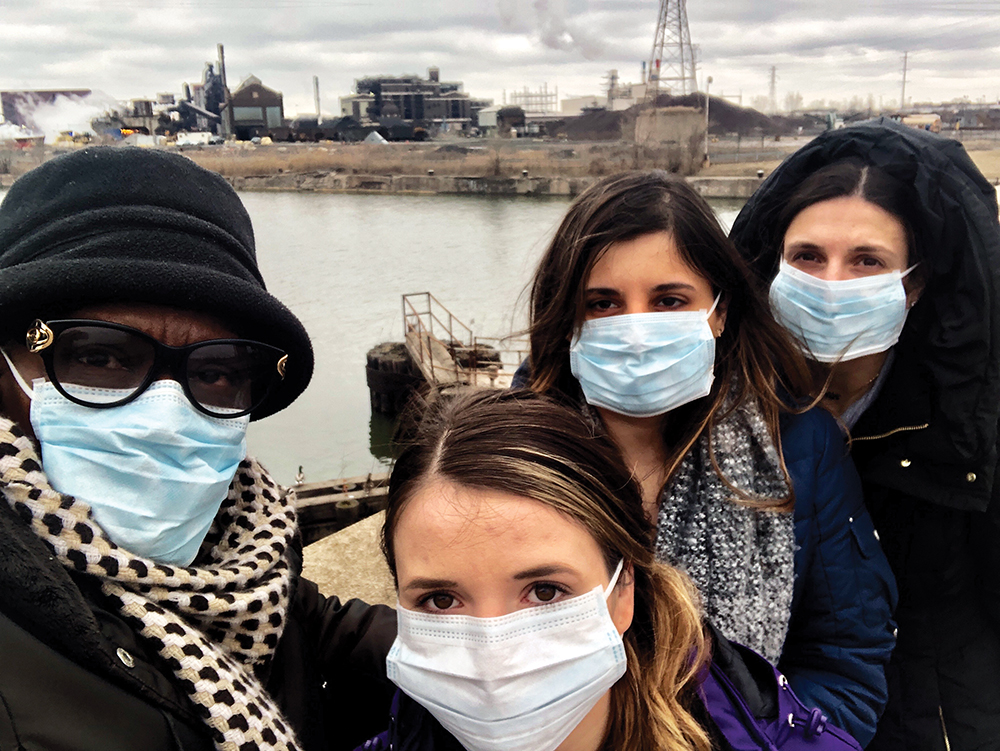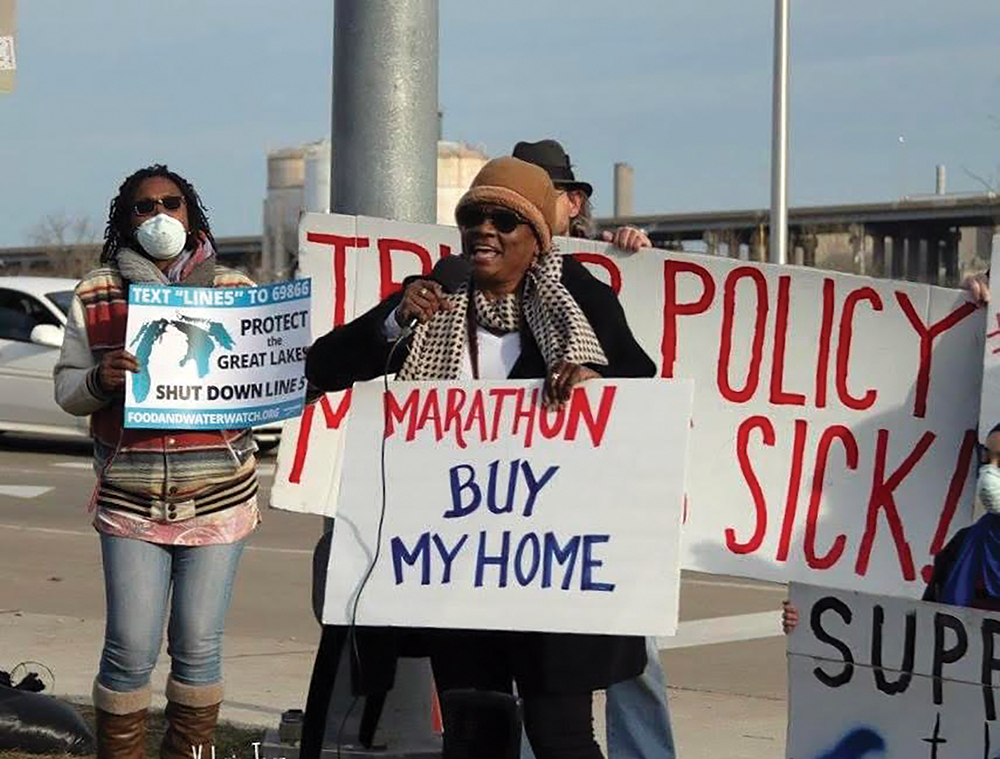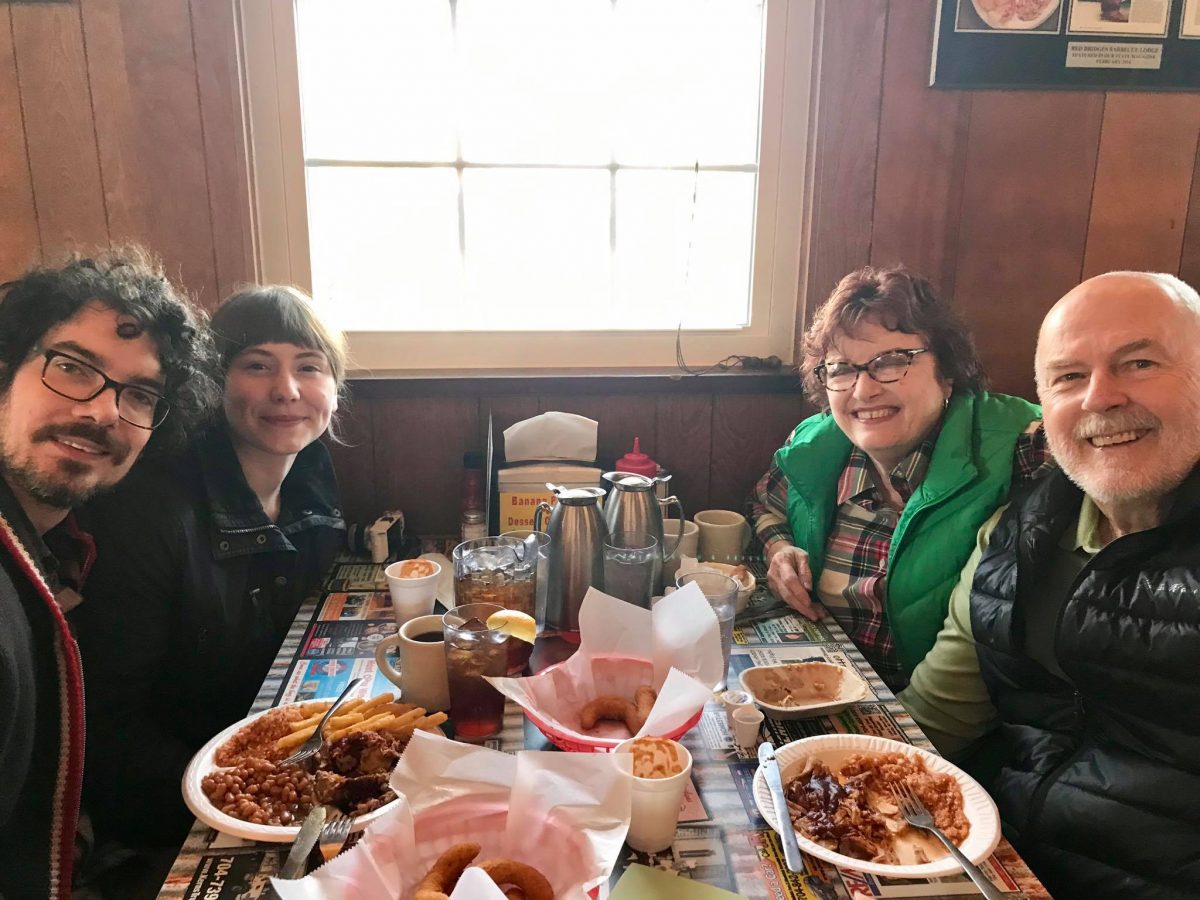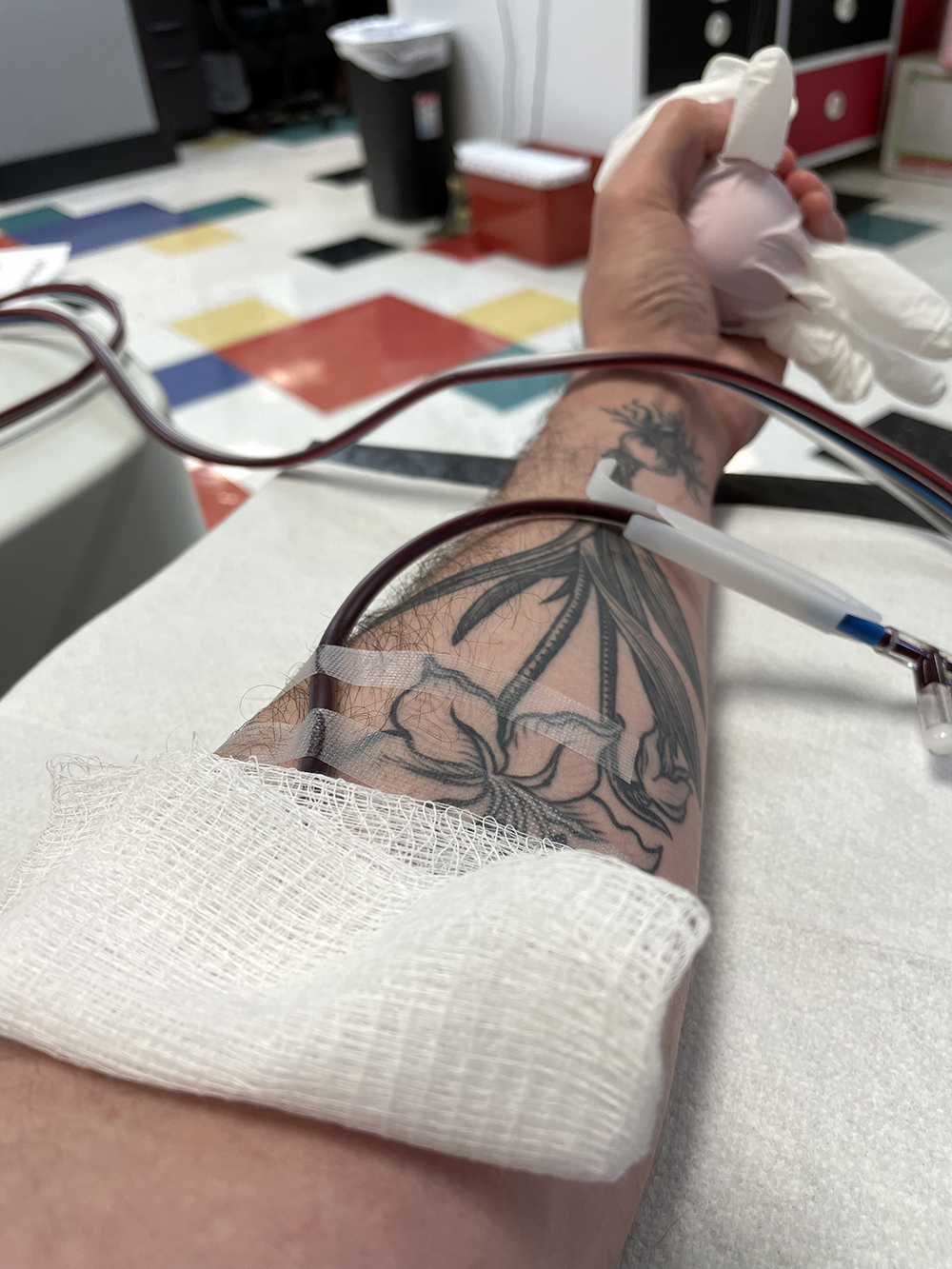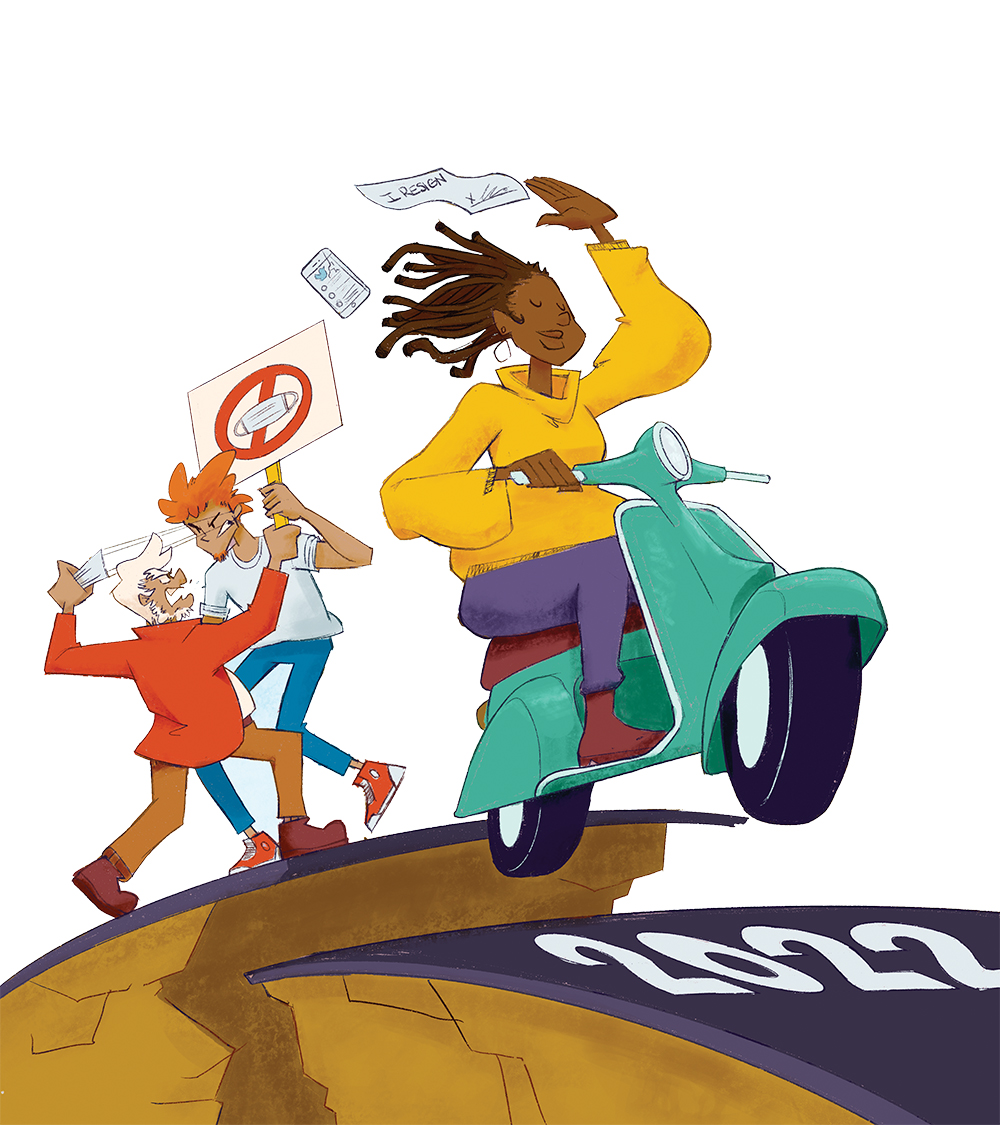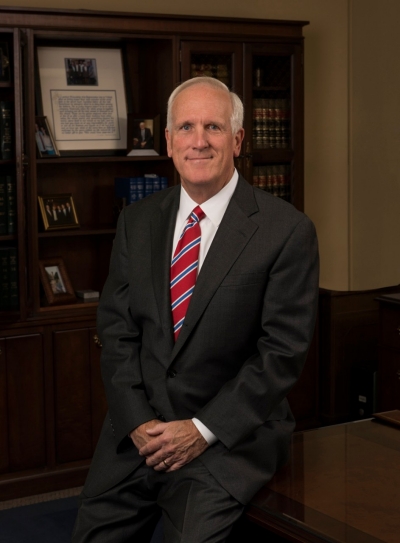Welcome to the Flyer’s first cover story of 2022.
Traditionally, the first cover story of the year is our “New Year, New You” feature — a collection of small steps to take toward self-improvement. We’ve written about dry January, reading more, getting outdoors, taking up a hobby, learning to meditate or play an instrument or how to do yoga. In short, over the years, we’ve covered a lot of ground with this feature. Last year, buoyed by a vaccine rollout and a naive hopefulness that closing the door on calendar year 2020 would make some sort of difference, we embraced optimism in this space. This year, though, we decided to focus on what we’d like to leave in the past.
So instead of hopefully embracing a new hobby, we’re kicking bad habits to the curb this year. We’re saying “screw you” to everything we don’t want to carry into the new year. If you, too, are feeling a Marie Kondo-esque urge to simplify your life, let this list of bad habits, addictions, and annoyances be your guide.
Leave Your Comfort Zone
My new life coach is Luca Paguro, the Italian child/sea monster star of the film Luca.
Last year, the world watched as Luca swam, crawled, walked, biked, and fell outside of his comfort zone. It wasn’t easy. If it were, Disney probably would not have made a movie out of it.
Luca is a hardworking, responsible sea monster child. He listens to his parents and does his chores without complaint. Still though, he’s curious about the world above the water, the one place he’s not allowed to go or even talk about. Like Reba McEntire before him, Luca wondered, “Is there life out there?” If so, how did he fit into it? Did he at all?
He drags himself to the edge of his comfort zone but can’t quite stick his head out of the water. He’s yanked out of it all by Alberto Scorfano, another sea monster child who’d become Luca’s friend and out-of-the-water mentor.
Alberto teaches Luca to walk, and that ain’t easy for someone who’s only swum his entire life. Luca fails and fails again but eventually (and awkwardly) finds his footing. That’s where Luca’s magical journey begins.
That’s really where all magical journeys begin — outside of the comfort zone. Yours. Mine. Everyone’s. Nothing new happens inside your old routines and habits. So, if you want change this year, you have to — have to — do something different.
Do you want to start a YouTube channel? Want to travel? Want to write? Want to lose weight? Want to play piano? Want to cook? Want to garden? Want to get a better job? Want to save money?
Every single one of these journeys begins at the same place, that spot right outside your comfort zone. It’s going to feel weird and probably not great in the beginning. That’s how you know it’s working.
If Luca had stayed inside his comfort zone, he wouldn’t have met new friends, ridden a bike, played soccer, tasted ice cream, eaten pasta, climbed a tree, ridden a Vespa, ridden a train, fallen in love with learning, gone to school, or won the Portorosso Cup (spoilers, sorry).
Be like Luca this year and leave behind your comfort zone. — Toby Sells
Screw the Screens
If you picked up this issue of the Flyer from a newsstand and are reading it in all its ink-on-paper glory, I salute you. Too few these days remove their eyes from digital devices often enough to read things in print. To be fair, I’m equally pleased with those of you visiting this article via our website — we know that’s how many folks consume information, and we’re happy to have you stumble upon memphisflyer.com to read this online. My desire to leave obsessive screen time behind in the new year has more to do with mental and physical health, and the ways in which we interact.
Did that status update receive any new likes in the past 20 minutes? Did I get a new email? Is there a text message I need to respond to right away? It seems, especially after enduring varying levels of isolation throughout the pandemic, I’ve spent the majority of my time shifting through screens — laptop for several hours of the work day, phone while doomscrolling social media in the evenings, occasionally switching to the iPad to play some time-wasting game, television to binge-watch the newest season of That Show Everyone Is Talking About.
Not only does it create a sort of time warp (is it really already 11 p.m.?), but it steals from us precious hours we could spend outside in nature, visiting friends or family, crafting, creating art, turning the pages of an actual book, pursuing our passions, learning, growing. Too much screen time is believed to increase anxiety, contribute to short attention spans, and can make it more difficult to fall asleep. In 2022, I hope to avert my eyes more often — put away the screens and be present in the real, tangible world. — Shara Clark
Leave the Grind Behind
There was a time when reading the above section headline would have made me roll my eyes right into the back of my skull. “Leave the grind behind? That’s fine for you, Mr. Moneybags, but some of us have to grind to survive,” I would have thought.
If you have a similar response, I get it. For some people, the “grind” is the only way to keep the lights on and food on the table. Heck, I started working when I was too young to legally clock in, getting paid “under the table” to fetch and carry young orange trees at a plant nursery, and I continued that workaholic trend, holding down two jobs for most of my life so far.
That said, many young Americans have internalized the belief that everyone needs a main hustle, a side hustle, and some kind of monetized hobby at minimum. So for me, saying “screw the grind” doesn’t mean quitting doing the work necessary to survive. It means that I don’t have to say “yes” to every odd job and freelance gig that comes my way. For years, I worked at the Flyer, at another business on nights and weekends, played (usually paying) gigs, and took on whatever landscaping, yard work, house-sitting, pet-sitting, and freelance writing or editing gigs came my way. I felt, as Bilbo Baggins tells Gandalf, “like butter scraped over too much bread.”
Because the grind is what brought me here, I won’t hate on it, but I’ve come to realize that it’s not something to be prized in and of itself. It’s a means to an end, or a necessity of circumstance, not a personal identity, no matter how good it feels to be needed.
So if you’re feeling like Bilbo’s butter, I hope you can find time to take a breath. I hope you can make more room for yourself in your life and can step out from the shadow of your job or jobs. There’s more to you than your career or passion project. — Jesse Davis
Get Over Yourselves
Every year around the time when the numbers on the calendar tick up by one, we are called on to find ways to improve ourselves. Increasing our self-esteem, we are told, is the way toward happiness and greater productivity.
Well, look around you. Is it working? We’ve been gassing ourselves up for years now. Is the world a better place because we have better opinions of ourselves? Quite the opposite. Look no further than the damned pandemic — and really, can you look at anything else? There’s a whole generation of people with so much confidence in the innate superiority of their immune systems that they think they don’t need a vaccine — which, make no mistake, is an actual miracle of science — to help them avoid the deadliest disease in a century. How’s that working out for them? Badly. But they don’t care because to care would mean acknowledging the fact that they are not all that.
Instead, we should all get over ourselves. Accept the truth that you are a mistake arising from a mishap built on top of an oops. On the cosmic level, your imagination is not adequate to conceive of your insignificance. Nothing has any meaning except what you imbue in it.
Does this sound bleak and horrifying? It’s actually liberating. That racist who thinks the color of his skin makes him better than you? Who cares what he thinks? He comes from the same genetic slop pond as the rest of us. Stressed about the big deadline coming up at work? Relax! Your work will crumble into dust long before the sun expands and reduces the Earth to a cinder. Unlucky in love? Look at all those miserable married people, then redefine “luck.”
When we all accept that we are garbage, maybe we can make our dumpster more livable. In the immortal words of Carl from Aqua Teen Hunger Force, “This don’t matter. None of this matters.” — Chris McCoy
Screw You, Musical Tribalism!
We all know the smug certainty of those who proudly refuse to “get” a whole genre of music or dismiss you for not knowing certain groups. These people, real or imagined, often live rent free in our heads. Like a High Fidelity character in overdrive, it’s that guy who “only likes the Ramones,” or can’t believe you’ve never heard so-and-so. I even embody that to some. “Oh, you know, I’m not hip like you.” If they only knew!
But, as Tower of Power once asked (“Oh no, not funk!” I hear someone exclaim), “What is hip?” The proliferation of the hipster stereotype in today’s culture is really just a marker of the bewildering plethora of music now available. None of us can keep up with it. Yet these imaginary, bearded oracles supposedly can.
The blunt reality is, no one can. You don’t need to wear your records like a badge, and no one cares about your pure aesthetic. Contrary to lay opinion, there is no Memphis version of High Fidelity. Some from the suburbs often confess an insecurity about browsing this city’s brilliant record shops, and the first thing I tell them is: That smugness is illusory. That clerk behind the counter? I happen to know she digs free jazz, rap, old country, punk, and funk. And on rainy nights, maybe even a little classical. Give up your FOMO and move on. Crates of undiscovered records stand before you: Get to digging! — Alex Greene
Screw Fear of Covid
Yes, I know, the OmiGOD! variant is sweeping the country, making more people sick than ever before. But you know what? If you’re vaxxed and boosted and get it, your odds of being hospitalized are next to zero. You probably won’t even get very sick, if at all. Yes, the number of infections is way up, but the number of deaths is way down. With very rare exceptions, Omicron is not killing vaccinated people. So be one of those people.
This is not March 2020, when we had no medicines, no vaccines, and no real knowledge of how to fight Covid. Those days are gone. We now have incredibly effective vaccines available to keep us from getting Covid, and new meds and treatments to fight the disease, if we do catch it. And we have a president who believes in following the medical science instead of recommending bleach, hydroxychloroquine, horse meds, and magical thinking in a nightly dog-and-pony show.
“The hiding-in-our-basement-behind-the-pile-of-sandbags moment has come and gone,” says Andrew Noymer, associate professor of population health and disease prevention at the University of California at Irvine. “If the rationale is that there’s Covid outside the door, well we’re going to be hiding in our basement forever, because there’s going to be Covid next year, and the year after that.”
Exactly. Predictions are that a wave of Omicron is about to sweep the country, but we know what to do: Make sure you’re vaccinated and boosted, mask up in public spaces, and avoid large gatherings when a wave is passing through. But we also need to recognize that Covid is becoming endemic, meaning that it’s likely to become a recurring disease, like the flu or a cold, and — except for the very elderly, the immunocompromised, and the ideologically stupid — the rest of us are going to have to learn to stop being so afraid of it. — Bruce VanWyngarden
Quitting Coffee (Well … Kind Of)
Since my routine was to drink about three or four cups of coffee before I even got in the shower each morning, I thought maybe I’d place less emphasis on coffee this year.
The first thing I do in the morning is make a pot of coffee in my electric stainless steel percolator.
The last thing I do before I go to bed is clean my electric stainless steel percolator.
If there are just four cans of Chock Full o’ Nuts on the shelf at the grocery store, I buy all four — just in case they won’t have any the next time I need it.
I asked for — and got — a stainless steel stove-top percolator for Christmas. No electricity needed. So, if the power goes out, I can still make coffee on my gas stove. Providing I have water.
I was at a dinner party around the holidays and one of the hosts knew I would select the coffee-flavored gelato from the selection of gelati during dessert. They know.
I have come a long way since the time I used to buy a cup of coffee every night on the way home from work. A large cup. But since we’ve mostly been working from home, I drink my own coffee at night at home.
For the past few days I’ve been limiting my coffee to four cups in the morning. I look forward to each one instead of slamming them down. I admit, I do wake up faster when I slam them down. I seem to move faster and get more things done.
So, I’ve just about finished my fourth cup of coffee today. I’m done. But maybe I’ll have one more cup because this is the first day back at work since my vacation. And because there’s snow on the ground. But maybe I won’t. Maybe I will. Maybe I won’t. Maybe I will. Maybe I won’t. — Michael Donahue
Resolved: De-Politicize the Virus
The oddest bit of news from the year just passed was the report that Donald Trump confided to a crowd of his friendlies that he’d had a booster shot — and was booed! Have we not been accustomed to believing that anything the Donald emotes is gospel to his minions? In fact, is it not part of our own catechism, we of the non-Trumpist majority, to draw connections between the former president’s actions in office (or lack of them) and the spread of the seemingly endless coronavirus malaise? So what’s up here?
It’s worse than we thought. Not only has political factionalism intruded into matters of health and wellness — a problem that is, in theory, correctable — but the disbelief in reality has become an illness more lethal and intractable than the troublesome Covid-19 spores themselves, and one wholly beyond the borders of ideology. Quick fact-check: Who is more antagonistic toward the principle of vaccination, Robert Kennedy Jr. of the sainted Democratic clan or the recently deposed ex-president? The answer is the former. Upon occasion, Trump has actually been heard to take credit for the quick emergence of vaccines, via Operation Warp Speed.
The fact is that common sense, even in matters of survival, is in short supply. People smoke, they drink too much, they drive too fast, they burn fossil fuels because, in the short run, it seems inconvenient to them not to. The Republican Party, by and large, has weighed in against mandates for masks because it is now, and always has been, easy to score political points against an abrupt call for hard discipline. People resist having to take cold showers.
If there is a high side to the current ubiquity and rapid spread of the Omicron variant, it is that at some point, a truly common peril becomes undeniable. One way or another, everybody “gets it.” And the virus becomes so universal as to erode all these self-serving political barriers. While we still can, let us make it a firm resolution to hasten agreement on the point. — Jackson Baker
